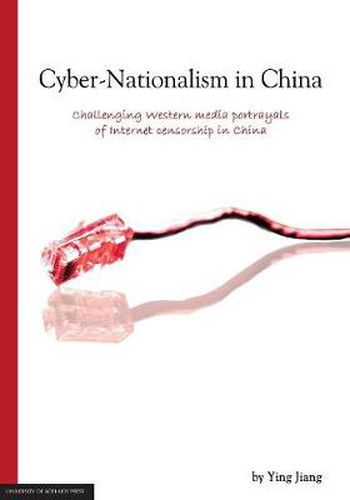Readings Newsletter
Become a Readings Member to make your shopping experience even easier.
Sign in or sign up for free!
You’re not far away from qualifying for FREE standard shipping within Australia
You’ve qualified for FREE standard shipping within Australia
The cart is loading…






This title is printed to order. This book may have been self-published. If so, we cannot guarantee the quality of the content. In the main most books will have gone through the editing process however some may not. We therefore suggest that you be aware of this before ordering this book. If in doubt check either the author or publisher’s details as we are unable to accept any returns unless they are faulty. Please contact us if you have any questions.
The prevailing consumerism in Chinese cyberspace is a growing element of Chinese culture and an important aspect of this book. Chinese bloggers, who have strongly embraced consumerism and tend to be apathetic about politics, have nonetheless demonstrated political passion over issues such as the Western media’s negative coverage of China.
In this book, Jiang focuses upon this passion – Chinese bloggers’ angry reactions to the Western media’s coverage of censorship issues in current China – in order to examine China’s current potential for political reform. A central focus of this book, then, is the specific issue of censorship and how to interpret the Chinese characteristics of it as a mechanism currently used to maintain state control.
While Cyber-Nationalism in China examines fundamental questions surrounding the political implications of the Internet in China, it avoids simply predicting that the Internet does or does not lead to democratization. Applying a theoretical approach based on the Foucauldian notion of governmentality, the book builds on current scholarship that has attempted to move beyond examining the dynamics of the socio-cultural and political use of new media technologies.
Instead, this book’s more intricate theoretical approach does not only accommodate the kind of liberal (apolitical or political) use observed on the Internet in China, but indicates that desires for political change, such as they are, are implicitly embedded in the relationship between China’s online communities and state apparatus – noting, however, that the latter claims total governance over the Internet in the name of the people.
$9.00 standard shipping within Australia
FREE standard shipping within Australia for orders over $100.00
Express & International shipping calculated at checkout
This title is printed to order. This book may have been self-published. If so, we cannot guarantee the quality of the content. In the main most books will have gone through the editing process however some may not. We therefore suggest that you be aware of this before ordering this book. If in doubt check either the author or publisher’s details as we are unable to accept any returns unless they are faulty. Please contact us if you have any questions.
The prevailing consumerism in Chinese cyberspace is a growing element of Chinese culture and an important aspect of this book. Chinese bloggers, who have strongly embraced consumerism and tend to be apathetic about politics, have nonetheless demonstrated political passion over issues such as the Western media’s negative coverage of China.
In this book, Jiang focuses upon this passion – Chinese bloggers’ angry reactions to the Western media’s coverage of censorship issues in current China – in order to examine China’s current potential for political reform. A central focus of this book, then, is the specific issue of censorship and how to interpret the Chinese characteristics of it as a mechanism currently used to maintain state control.
While Cyber-Nationalism in China examines fundamental questions surrounding the political implications of the Internet in China, it avoids simply predicting that the Internet does or does not lead to democratization. Applying a theoretical approach based on the Foucauldian notion of governmentality, the book builds on current scholarship that has attempted to move beyond examining the dynamics of the socio-cultural and political use of new media technologies.
Instead, this book’s more intricate theoretical approach does not only accommodate the kind of liberal (apolitical or political) use observed on the Internet in China, but indicates that desires for political change, such as they are, are implicitly embedded in the relationship between China’s online communities and state apparatus – noting, however, that the latter claims total governance over the Internet in the name of the people.